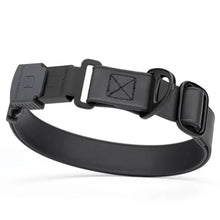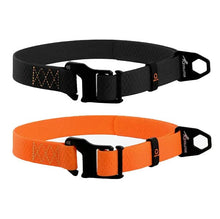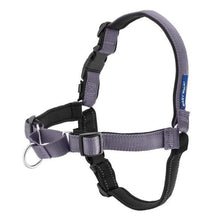How To Pick A Dog Trainer

There are several schools that people go to, to get certified as dog trainers. And there are many dog trainers who have never been to a dog training school at all. Which should you pick? Which schools produce better dog trainers? That's the topic of today's discussion.
Dog training schools are completely unregulated. Some are completely online and you never even physically have to train a single dog to graduate. Others require in person teaching where you bring your own dog, a puppy, or even work with dogs from rescues so they will be suitable family companions upon being adopted. In my opinion, a trainer who was taught by an instructor, in person, is going to be the better choice. You cannot learn intricacies like timing and reading body language when taking an online course.

Of the hands on schools, some are next to useless at teaching students practical training solutions to problems, and even techniques to train basic obedience. Others are top level and ran by people who are top competitors in dog sports, obedience competitions etc. A list of the good and bad ones would be longer than a CVS receipt, so you'll have to ask questions to filter through the good from the bad.
Never be afraid to ask tough questions about a trainer's personal experience vs what school they went to. What has or what does that individual do with dogs? Do they just train other people's dogs, or do they compete in AKC obedience for example? Do they do IPO, PSA, herding trials etc. with their dog? If they are not active in training themselves and their own dogs, that is a red flag. It is easy to say you are good or qualified for a task if you have never had to prove it in competition. If you have the option, always pick someone who competes or has competed. I'm not saying only go to world champions to get your dog trained, I'm saying that competition makes good dog trainers better.

If a person can handle the pressure of all eyes being on them when competing, they are more likely to be able to handle the pressure of working with multiple dogs with multiple different personalities every day. A person who competes well will have mentors, they'll get advice from other competitors and friends who compete at a higher level. That kind of experience can't be bought or taught at a school. It can be something as simple as learning to hold a leash a certain way, or use equipment in an unfamiliar way that actually turns out to be an improvement.
A teachable person is the best kind of dog trainer. Ask trainers that you are thinking of hiring "What's the last thing you learned about training, and how long ago was that?" If they bring up something from 5 years ago, they haven't been very good students in the past 5 years. Even top trainers in the world learn new things on a regular basis. A top trainer may be able to train a dog to do a certain task just fine, but all it takes is for someone who thinks differently than most others to discover a newer, simpler, quicker or better way to teach that same task. Teachable trainers will adopt that technique themselves and abandon the old technique, even though the old one worked just fine. Better is better. Teachable people know that.

Don't forget to ask how a trainer trains, their personal philosophy on dog training. A lot of schools and a lot of competitors are "old school, yank and crank" trainers. They're correction heavy because A: it works and B: it's fast. The faster they can train a dog, the more dogs they can train. The more dogs they train, the more money they make. While it is effective, it is stressful. It can make a shy dog shut down, and middle of the road dogs become shy. They will do as they are told, but they will hate training. Good trainers try to get the dog to want to do what they want them to. That's achieved by using praise, food and playing with toys. Corrections should not be used unless they're absolutely necessary.
R+ or positive only trainers don't use corrections at all. This works relatively well for most dogs, especially ones who are highly food motivated, but don't have much prey drive. Dogs with high levels of prey drive seem to be the dogs who don't do so well without corrections. If chasing a squirrel into the street is more interesting to them than a treat, there's not much you can do to convince them otherwise without using corrections. One would have to focus more on engagement and teaching the dog to ignore everything but their trainer/handler, and that takes a long time and a lot of skill. Even then, it won't be 100% in highly prey motivated dogs.

As with most things, trainers who are middle of the road seem to have the most success with a greater number of dogs. A trainer who will use corrections when they deem necessary, but would prefer to do everything positively with food and toys tends to work with dogs who are shy, all the way up to working line dogs who are very driven and determined.
In conclusion, make sure you ask the right questions. Realize that having a certificate can mean a lot, or absolutely nothing because the dog training market has no set of guidelines and no regulations. Try to find trainers who compete or have competed against other dog trainers. And last, but certainly not least, try to find a balanced dog trainer. Especially if you're having issues that may cause harm to your dog or other people.

If you enjoyed this article, please leave a like and share. This is one of the questions we see asked every day, without fail. So hopefully this helps and gets shared by everyone. Thank you.
You may also like: 5 Controversial Training Tools, Life Savers or Torture Devices?






















